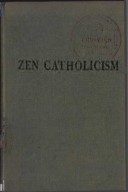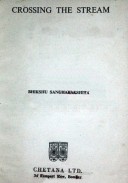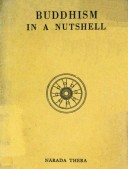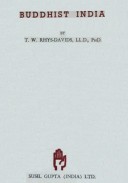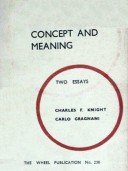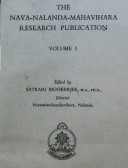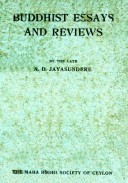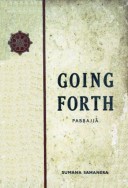Tìm Sách
Sách tiếng Anh-English >> Zen Catholicism
Thông tin tra cứu
- Tên sách : Zen Catholicism
- Tác giả : Dom Aelred Graham
- Dịch giả :
- Ngôn ngữ : Anh
- Số trang : 228
- Nhà xuất bản : Collins London
- Năm xuất bản : 1964
- Phân loại : Sách tiếng Anh-English
- MCB : 12010000004107
- OPAC :
- Tóm tắt :
Zen Catholicism a suggestion
Dom Aelred Graham
Prior of the Benedictine Community
Portsmouth, Rhode Island
COLLINS
ST JAMES’S PLACE, LONDON
1964
INTRODUCTION
This book has no message. In its original draft, it bore the title Zen Catholicism? – but I have allowed myself to be persuaded that the tentative note, interrogative mood, emerge with sufficient clarity from the subtitle. A question, not a proposal or a thesis, is here conveyed. Were that question as important as I think it is, its public discussion may turn out to be of some general consequence, even though the themes unfolded are too far-reaching to be brought neatly to a conclusion. The word Zen means “meditation”; which sounds simple enough. No one, presumably, would object to a more meditative Catholicism. Zen , however, is Buddhist, and Buddhism is commonly regarded as a religion on its own account. The religious aspect, a later development, of the Buddha’s teaching will not concern us. The question to be discussed are whether what is essential to Buddhism, with its zen emphasis, does not have its counterpart in Catholicism; wheter Catholics might not be helped, by the Zen insight, to realize more fully their own spiritual inheritance; and whether Zennists need be as exotic as they are.
ANALYTICAL CONTENTS
INTRODUCTION p. xi
CHAPTER ONE
OUTSIDE IN TO INSIDE OUT p.3.
An “existential” enquiry: How edaquate to humanity’s seeds is the Catholic message today? P.4 The anxiety characterizing our age. Understanding the problems. The importance of the individual’s response, p.6. faith modified by the mind of each believer, p.7. the inadequacy of the Christian “churche”, p.8. An analysis in depth is required, p.8. catholism needs to turn its inside out, p.9. the church’s position elucidated by rational philosophy, p.9. Widespread interest in Zen, p.10. buddhism and Christianity, p. 11. The Buddha, pp.11-13. The Dharma, p.13. the Four Holy (or Noble) truths, pp. 13-14. Buddhism neither theistic nor atheistic, p. 14. The Mahayana, pp. 15-16. Taoism, pp. 16-17. Chinese language and Zen in the West, p. 18. Zen as “unself-consciousness”, p.19. The goal of Zen, p. 19. A Zen story: “Is that so?”, pp. 19-20. No danger of confusion in applying en insights to Catholism, p. 20. pope John XXIII on the Church’s teaching remaining “a pronoucement without effect”, pp. 20-1
CHAPTER TWO
WHY SHOULD IT HAPPEN TO ME? P. 22
A child’s question, p. 22. god’s providential plan, p. 23. “I”and “me”, p. 23. The ego and its subject-object relationship, p. 24. The “person”, p. 24. The deeper level of consciousness, p. 25. Self-preoccupation, pp. 25-6. The “true” self, p. 26. Tat twan asi (= “That art thou”), p. 27. Distinction between creature and Creator, p. 28. Man’s commun with God, p. 28. God present in all things, p. 29. Zen tendency to belittle ethical obligations, pp. 29-30. A permanent ego admitted by Buddhists, p. 30. Selflesness, pp. 30-1. The self’s surrender to God, p. 31. the nature of “enlightenment”, p. 32. God “realizes” himself in us, pp. 32-3. Grace and nature, p. 33. Looking into One’s own nature, p. 33. Removing the sense of alienation, pp. 33-4. The Christian tat tvam asi, p. 34. God and human suffering, p. 34. The opposition : Yang-Yin, p. 34.God implicated in creaturely evil, p. 35. St. Thomas on God’s part in evil, pp. 35-6. Our attitude to ward evil. P. 37. The war within ourselves, p. 37. The need to be “oneed” with God, p. 37. How pappiness is possible, p. 38. The Buddha’s teaching more revelant than “popular” Christianity, p. 38. Catholic spirituality on the same level as Zen Buddhism, p. 39. God’s providence, pp. 38-9. God causes our free choices, pp. 39-40. St. Thomas on mental “illumination”, p. 41. Unnatural to be separated from God, p. 48.
CHAPTER THREE
HAVING ONE’S OWN WAY P. 43
Duality between conscious ego and true self is caused by a grasping desire or craving, p. 43. The need is not for world-renouncing asceticism but for nonattachment, p.p 43-4. The ambivalence of having one’s own way, p. 44. The theology of the fall, p. 44. Guilt and egocentricity, pp. 44-5. Difficulty of looking at things they are, p. 45. Danger of living in an imaginary world in which the conscious ego is supreme, pp. 45-6. All lies in sympathetic insight, p. 46. Egoism of the mind, p. 47. “Try not to seek after the true”, pp. 47-8. In the way of Truth, “nothing is easy, nothing hard”, p. 48. Looking and listening, p. 48. Enhancing the ego by grasping and clinging, p. 49. Living on the spot wher we are, p. 50. Corporate and professional loyalties, p. 51. These illustrated by the clerical profession, pp. 51-2. The priestly state, p. 52. Positions of power and pretige, p. 53. Anti-clericalism, p. 54. Speaking and writing about religion, pp. 54-5. The Church in progress of self-realization, p. 55. Clerical preoccupations not to be equated with religion itself, p. 56. The Church’s “ego”, p. 57. The sacrements, pp. 57-8. The Eucharist, p. 58. Spiritual direction, pp. 59-60. Doing what one pleases, pp. 60-1.
CHAPTER FOUR
THE IMPORTANCE OF NOT BEING EARNEST P. 62
A sense of humour about religion, p. 62. The earnest approach, p. 63. Faith is a response to reality, pp. 63-4. Selfihness masquerading as piety, p. 64. Religion can intensify suffering, p. 64. Becoming involved in the unending round of karma, pp. 64-5. The stopping of craving, p. 65. To realize the I and me as one, we need enlightenment, p. 65. Distinction between the true self and the conscious ego, pp. 65-6. Guilt feelings, p. 67. “Do not discuss right and wrong”, p. 66. Absurdity of the exixtentialist position, pp. 66-7. Nature calls for fulfilment, p. 67. True self-expression, p. 67. Emotional effects of hatred and love, pp. 67-8. Story of two monks, p. 68. What is to be done about ego-awareness?, p. 68. Know thyself, p. 69. Satori (= “enlightenment”), pp. 69-70. Gap bridged between knower and known, p. 70. Satori and orthodox Christianity, pp. 70-1. Catholicism and the Zen insight, p. 71. “I did it” – an infantile idea, p. 72. Sin, p. 73. Getting rid of awareness of one’s own existence, pp. 73-4. The root of our distress, p. 75. Suffering never unbearable when understood, p. 75. Soul and body work together, p. 75. The sitting posture, p. 76. Danger of self-deception, p. 77. No one can stand outside tradition, p. 78. On not “holding on”, p. 78. The trust the ego to preserve its independence. P. 79. Desirelessness p. 79. The “cloud of unknowing “, pp. 79-80. God reached by love rather than knowledge, p. 80
CHAPTER FIVE
WITH FIRMNESS IN THE RIGHT P. 82
“ As God gives us to see the right”, p. 82. An unverified “inner light” not enough, p. 82. Is Zen quietistic and amoral?, pp. 82-3. The “morality of Zen”, p. 83. What is to be Zen’s fate in the West? , p. 84. Zen may find its place in a Western wisdom tradition, p. 85. The “holy eight-fold path”, pp. 85-6. Seeing things in their “suchness”, p. 86. The more we are under God’s dominion , the more we are ourselves, p. 87. The “interriorization” of God’s law, p. 87. The law of the Holy spitit, p. 88. Christian morality as the “good life”, p. 89. Virtuous living is natural living, pp. 89-90. Zen spontaneity presupposes a “second birth”, p. 90. Eternal and natural law: the “ought”, p.p. 90-1. St. Thomas on “enlightenment”, p. 91. Catholicism stresses ought as well as thought, p. 92. Example of Socrates-the great tradition of “enlightenment”, p. 93. The Church’s concern for wisdom, p. 94.
CHAPTER SIX
“SEEMS, MADAM? NAY, IT IS” P. 97
The problem of conduct, p. 97. The grace of enlightened compassion, p. 97. Scene from Shakespeare’s Hamlet, p. 98. Conventions must be seen through, p. 99. Distinction between seeming and being-Maya, pp. 99-100. An illustration from Cardinal Newman, p. 101. Limitation of words, pp. 101-2. Immaturity of much Catholic thinking, p. 102. Failure of Modernists to deal with problem, p. 102-3. The Church’s doctrine prpositions, p. 103. Object of faith not a proposition but a thing, p. 103. Penetrating the outward to reach the inward, pp. 104-5. Creeds and sacramental symbols a divinely sanctionned form of naming, p. 105. Questions raised by Wittgenstein, pp. 105-6. The use of symbols, p. 106. The need to focus thought, p. 107. Weakness in expositions of Zen, p. 108. D. T. Suzuki criticized, pp. 108-9. “Why drag in right and wrong?”, p. 110. Morality and convention, p. 111. Uncertainty of the moral judgment, pp. 111-12. How are the key terms used?, p. 112. Do we face the facts with fufficient honesty?, p. 113. The Church’s teaching on sex, pp. 113-14. Giving glory to God, p. 114. Ricollectedness, pp. 114-15.
CHAPTER SEVEN
PLAYING GOD OR LETTING GOD PLAY? P. 116
Our task is not to initiate but to respond, p. 116. Ways in which we tend to play God, pp. 116-17. God does not act arbitrarity, p. 117. Mental egocentricity, pp. 117-18. “Only cease to cherish opinions”, p. 118. On exercising authority, p. 118. The value of custom as a check to egoism, p. 118. On guiding others, p. 119. “Don’t judge other by yourself”, p. 119. Clinging to hate and love, p. 120. Nonattachment to results, pp. 120-21. Asceticism and discipline, p. 121. The basic need: a change of heart, p. 122. Being faithful to one’s true self, p. 122. Discipline a disciple is one who learns, p. 122. Yoga, p. 123. play and relaxation, p. 124. Playfulness in mature years, p. 124. The value of casualness, p. 125. We are God’s playthings, pp. 125-26. The game of life, pp. 126-27. The exerience of God, p. 127. Satori, p. 127. Many parallels to satori, p. 128. Its characteristics, p. 129. Difficulties with regard to satori, pp. 129-30. An account of satori, p. 130. “Cosmic consciousness”, p. 131. A point overlooked in Buddhist tradition, p. 131. The koan system, pp. 132-33. Koans and parables, p. 133. Value of Zen stress on the now, p. 134. Keeping one’s mind like a mirror, p. 134. Avoiding the egoism of judging others, p. 134. Safer in god’s hands than in our own, p. 135.
CHAPTER EIGHT
ANY SEASON A GOOD SEASON P. 136
Evey day is a good day, p. 136. A salutary fatalism, p. 137. An evaluation of Zen, p. 137. The prerequisites of liberty, p. 138. Zen’’s “Four statements”, p. 138. Zen’s message should be embodied in Western tradition, p. 139. D. T. Suzuki’s simple mindedness, p. 139. Wisdom of Zen apostolate to the West questioned, p. 139. Suzuki and Buddhism, pp. 140-41. Could Zen’s function in the West be to heal the breach between religion and every day life?, p. 141. Process of nature God’s immediate handiwork, pp. 141-42. God’s “goodness”, p. 142. We learn to be tolerant of what God tolerates, p. 143. Bare attention, p. 143. We have to see through “labels”, p. 144. Achieving attention without tension, p. 144. Zazen-“to sit and meditate”, p. 145. Zen meditation, p. 145. Remarks by St. John of the Cross, p. 145. The Cloud of unknowing on contemplation. P. 146. Contemplative state not an exclusive preoccupation with God, since God excludes nothing, p. 146. Sat-Cit-Ananda: Being –knowledge-Bliss, p. 147. The Catholic’s satori, p. 147. Christian agape and Buddhist karuna, pp. 147-8. “The enlightened have no likes or dislikes”, p. 148. Remarks on death, pp. 148-49. Living in the present is the secret pf happiness, p. 149. Lines from Ben Johnson, p. 149. The reality of time, pp. 149-50. But Catholicism’s raison d’être is beyond time, p. 151. We can live in a continuous present, p. 151. Catholic spitituality and the Hindu-Buddhist-Zen tradition, p. 151. “Nothing exists of time except now”p. 152. We have to become “children of time present”, p. 152. Eternity not everlastingness, p. 152. Sanctity is willing what happens to us by God’s order. P. 153. No salvation outside the soul, pp. 153-54. Facing reality with complete awareness makes every season a good season, p. 154. Spirit of Zen congenial to Catholicism. P. 154. Satori of mother Juliana of Norwich, p. 155. Whatever is of permanent value in Zen is not Japanese but Buddhist, p. 155. The Buddhist insight is something universal, p. 155. Buddhism in Japan on the dicline, pp. 156-57. The Zen insight may cleanse the Christian mind a little, p. 157. Zen unithing Martha and Mary, action and contemplation, pp. 157-58. Catholics becoming more “mindful” of what they already know, p. 159. All that is required of us it not to harden our hearts, p. 159. To live as one’s trur self-egolessly, p. 160.
THREE SUPPLEMENTARY DISCUSSIONS
I On Yoga p. 163
II On Monasticism p. 171
III Saint Thomas Aquinas p. 183
POSCRIPT
A Critique of a Critique:
The Case of Walter Kaufmann p. 197
INDEX OF NAMES P. 221
 Facebook
Facebook
 Google
Google
 Google+
Google+
